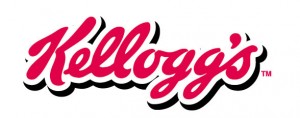 On Wednesday, Kellogg said it would increase its efforts to lower planet-warming emissions through its supply chain in part of its wider initiative that is designed to be much more environmentally friendly.
On Wednesday, Kellogg said it would increase its efforts to lower planet-warming emissions through its supply chain in part of its wider initiative that is designed to be much more environmentally friendly.
In the plan, the manufacturer of food products based in Battle Creek Michigan will require its key suppliers such as mills and farms to measure and disclose publicly their outputs of greenhouse gas and their targets for lowering them.
The cereal maker said it would report each year on the emissions and include deforestation and climate policies in the supplier’s code of conduct for the company.
The company has also pledged to become a part of the Innovative Climate and Energy Policy. This is a coalition supporting legislation that is in favor of cleaner energy and an economy that is low carbon.
Kellogg’s announcement drew big praise from the group pushing food and beverage industry member to lower their carbon emissions.
Oxfam International said climate change has put hundreds of millions at risk of hunger as well as threatening everything from cereal and coffee to chocolate and wine.
Kellogg, said Oxfam’s spokesperson, has joined a growing list of businesses that have put the weight of each of their brands behind climate action.
Besides the climate measures, the maker of Special K cereal and known for other popular products such as Keebler cookies and Pringles announced a number of goals for green performance to reach before 2020 that includes an increase of 50% in low-carbon energy use and the establishment of projects related to water-reuse in 25% of all its plants.
Kellogg will increase to 30% the amount of plants that are not sending waste to landfills and use packaging that is more efficient, with all packaging materials that are timber-based being recycled or being received by sources that have been certified to be sustainable.
